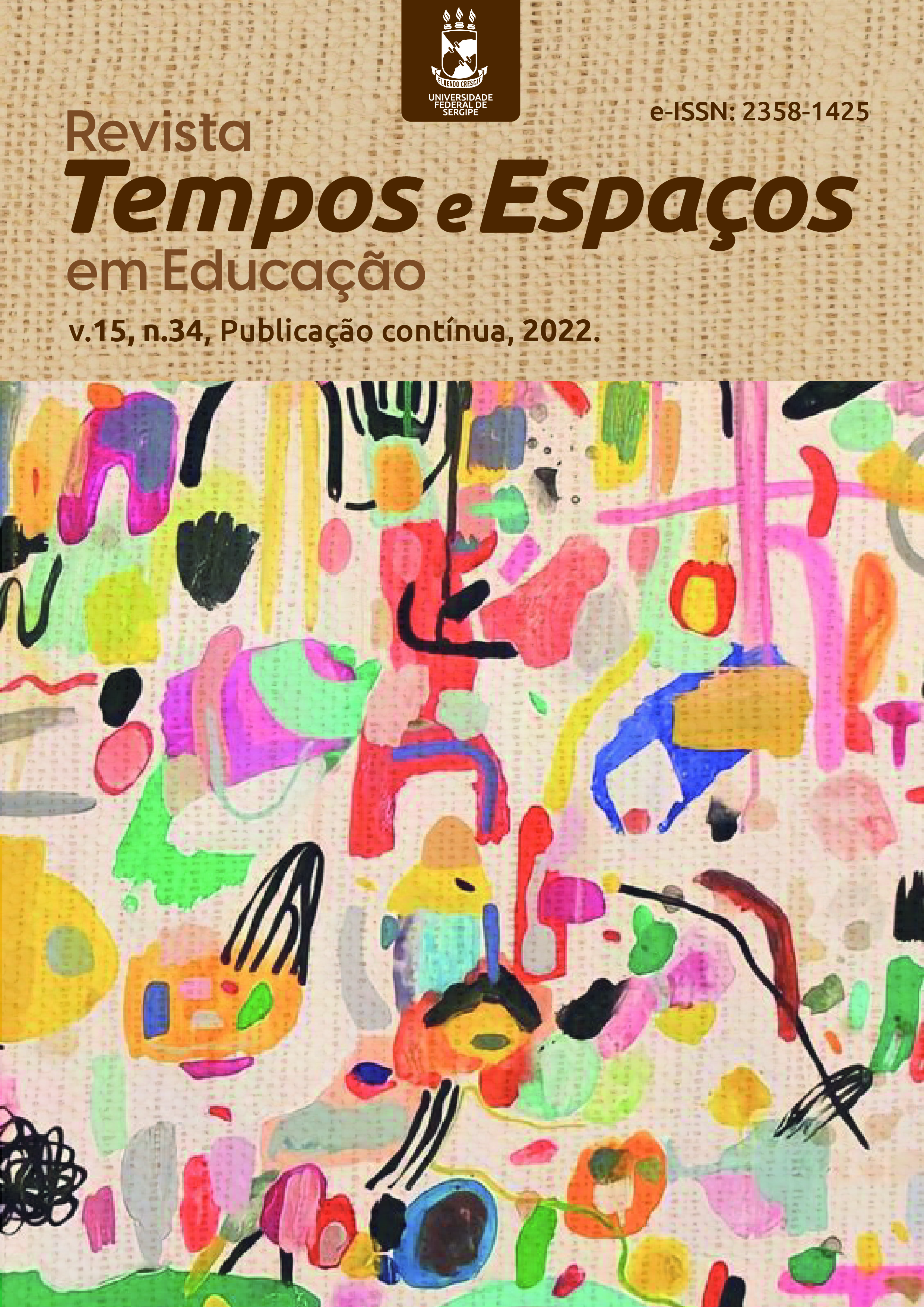Technological resources in bilingual education for deaf students
DOI:
https://doi.org/10.20952/revtee.v15i34.17234Keywords:
Deaf, Educational games, Inclusion, LearningAbstract
Digital technologies present many possibilities to enhance the teaching and learning processes of deaf and hearing students. An example of this are the technological didactic games, which can contribute to learning and digital and social inclusion. Using strategies that promote the inclusion of deaf students is currently a latent need. Thus, this paper aims to study the use of playful resources structured with the Power Point tool in the process of acquisition of Portuguese language in a bilingual proposal with sign language. This study aims to analyze the contribution of technological didactic games in the process of acquisition of Portuguese Language, by high school students, in a classroom context composed of deaf and hearing students, in a school located in the city of Timon, in the state of Maranhão. It is a field research, of exploratory and qualitative nature, which also investigates the representation of deaf culture in the didactic games used, and the contribution of technological resources in educational contexts that do not have access to the internet. To achieve the objectives, in addition to bibliographic references, it was made observation of the classes with the use of games and application of semi-open questionnaire for analysis. The results show that digital games promote engagement and motivation for learning, and that playfulness provides the creation of a more empathetic and inclusive environment.
Downloads
References
Albres, N. A. (2015). Intérprete educacional: políticas e práticas de sala de aula inclusiva. São Paulo: Harmonia.
Antunes, C. (2017). O jogo e a educação infantil: falar e dizer, olhar e ver, escutar e ouvir. Petrópolis: Vozes.
Baladeli, A. P. D., Barros, M. S. F., & Altoé, A. (2012). Desafios para o professor na sociedade. Educar em Revista, 45, 155-165. https://doi.org/10.1590/S0104-40602012000300011
Gesser, A. (2020). O ouvinte e a surdez: sobre ensinar e aprender a Libras. São Paulo: Parábola.
Huizinga, J. (2020). Homo Ludens: o jogo como elemento da cultura. São Paulo: Perspectiva.
Lorn, J. T. (2015). Do jogo didático ao jogo didático surdo no contexto da educação bilíngue: o encontro com a cultura surda. Dissertação de Mestrado, Universidade Federal de Santa Catarina, Florianópolis, SC, Brasil.
Marconi, M. A., & Lakatos, E. M. (2003). Fundamentos de metodologia científica. São Paulo: Atlas.
Michaelis (2019). Dicionário Escolar de Língua Portuguesa. São Paulo: Melhoramentos.
Prensky, M. (2012). Aprendizagem baseada em jogos digitais. São Paulo: Senac.
Quadros, R. M. (2003). Situando as diferenças implicadas na educação de surdos: inclusão/exclusão. Revista Ponto de Vista, 5, 81-111.
Quadros, R. M. (2008). Educação de surdos: a aquisição da linguagem. Porto Alegre: Artmed.
Quadros, R. M., & Karnopp, L. B. (2007). Língua de sinais brasileira: estudos lingüísticos. Porto Alegre: Artmed.
Schlemmer, E., Di Felice, M., & Serra, I. M. R. S. (2020). Educação OnLIFE: a dimensão ecológica das arquiteturas digitais de aprendizagem. Educar em Revista, 36, e76120. http://dx.doi.org/10.1590/0104-4060.76120
Sena, L. S., Pinheiro, A. P., Sousa, A., & Serra, I. M. R. S (2021). Nuvem de Palavras: estratégia de inclusão e inovação pedagógica. In: R. S. Silva (Org.). Alinhavos sobre a educação especial na perspectiva inclusive. Santo Ângelo: Metrics.
Silva, G. B., Pimentel, & F. S. C. (2021). Produção de material didático através da apredizagem baseada em jogos na Educação Infantil e no Ensino Fundamental I. In: . F. S. C. Pimentel (Org.). Aprendizagem baseada em jogos digitais: teoria e prática. Rio de Janeiro: BG Business Graphics Editora.
Vieira, A. B., Oliveira, E. A., & Pimentel, F. S. C. (2020). Games e aprendizagem: a voz das crianças. Revista Temática, 16(2), 276-292. https://doi.org/10.22478/ufpb.1807-8931.2020v16n2.50705
Vigotski, L. S. (2003). Psicologia pedagógica. Porto Alegre: Artmed.
Published
How to Cite
Issue
Section
License
À Revista Tempos e Espaços em Educação ficam reservados os direitos autorais pertinentes a todos os artigos nela publicados. A Revista Tempos e Espaços em Educação utiliza a licença https://creativecommons.org/licenses/by/4.0/ (CC BY), que permite o compartilhamento do artigo com o reconhecimento da autoria.



